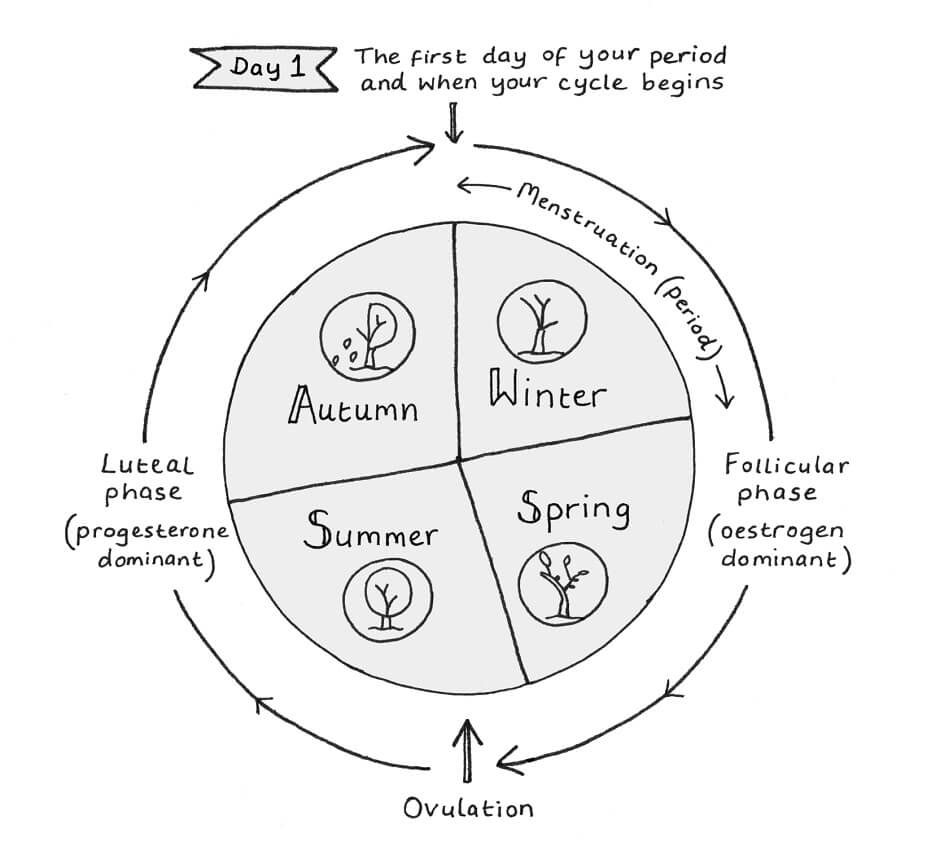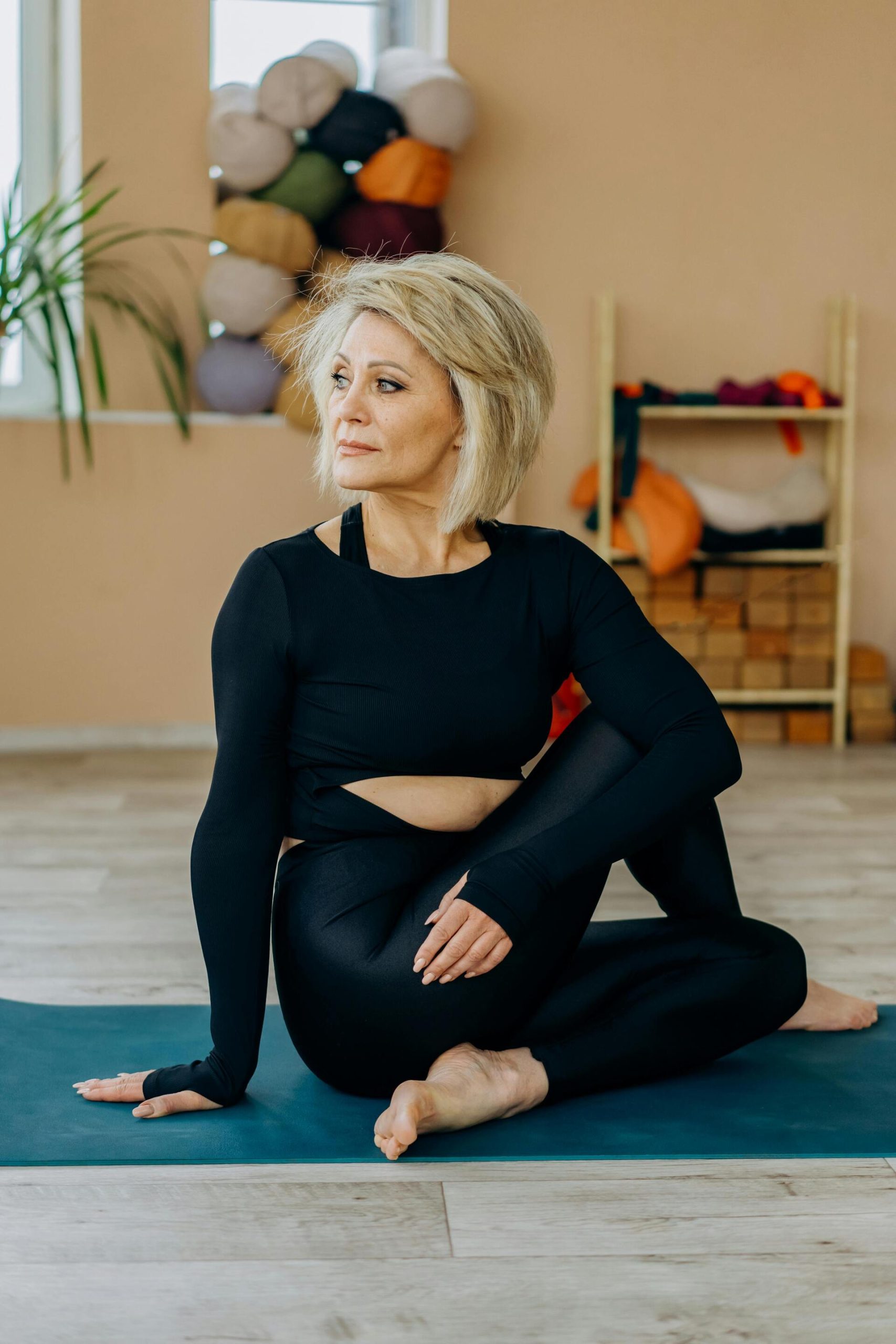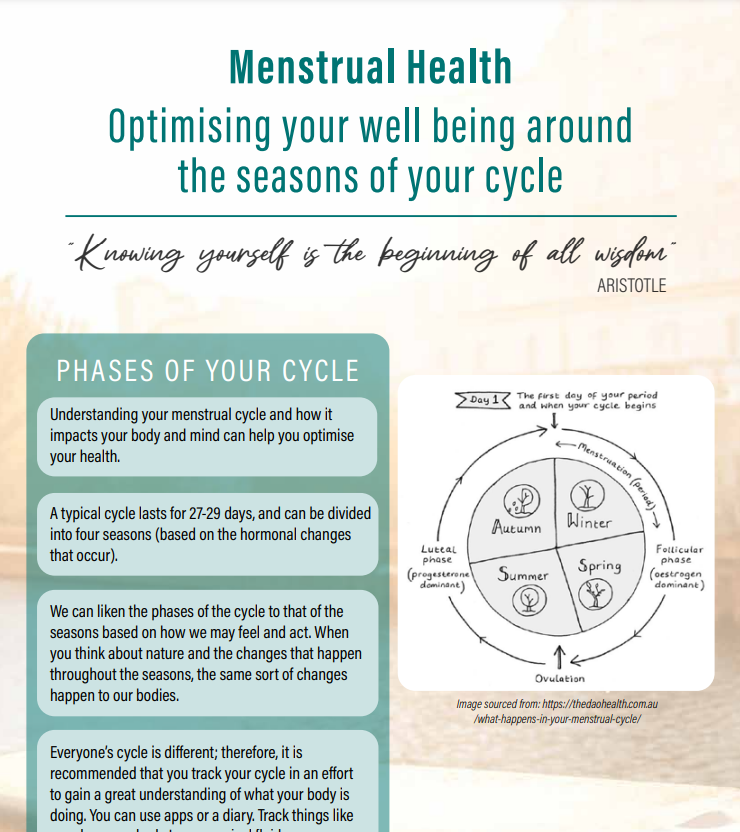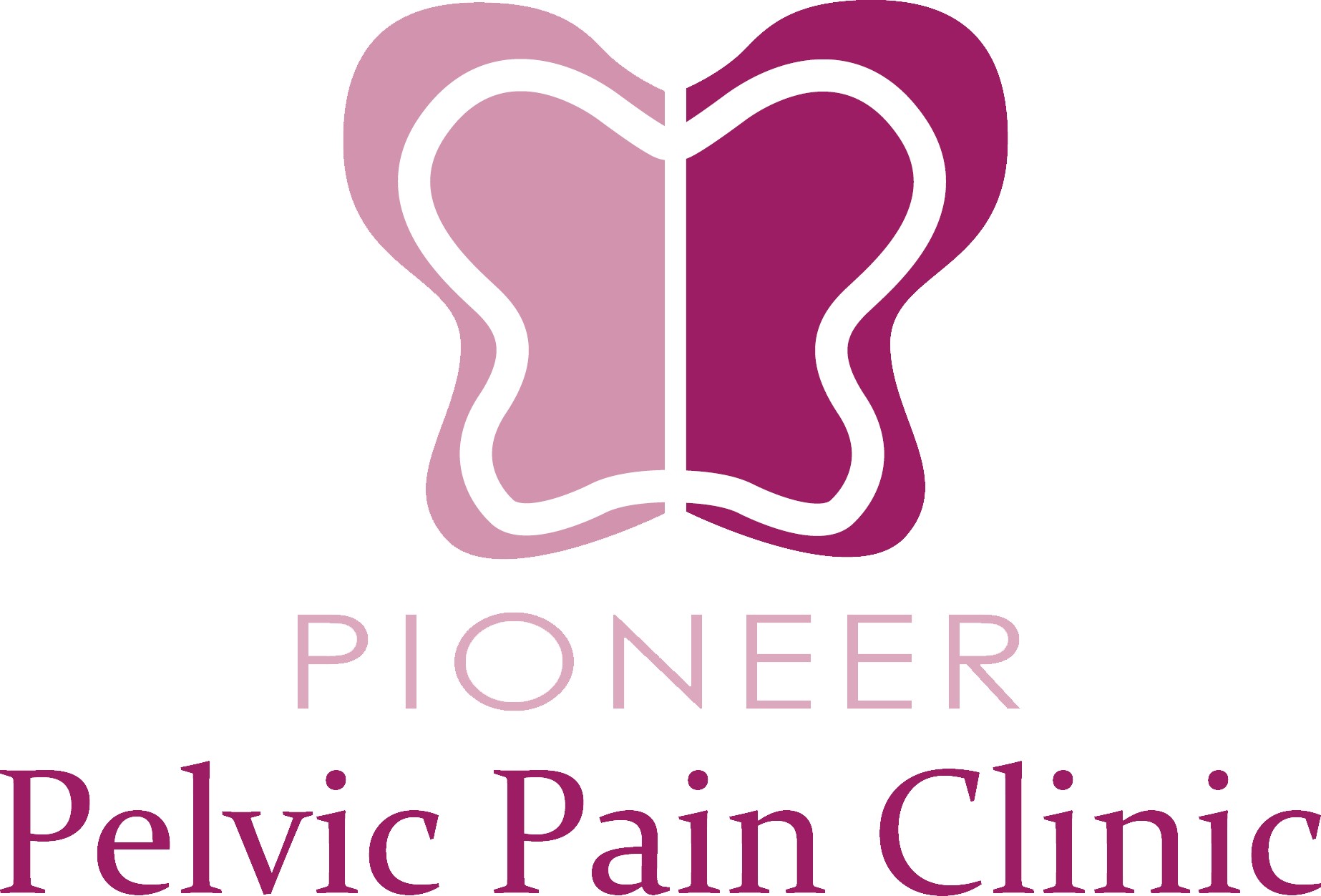From our Pelvic Health Physio
Cycle Sync - Menstrual Health

cycle sync
Menstrual Health Optimising your well being around the seasons of your cycle
Winter | Menstruation or Period
What you may notice
• Basal body temp (BBT) drops a day or so before your period starts.
• Bloating, breast tenderness, emotional tension.
• You may start to bleed.
• You may experience menstrual cramps.
• Your boundaries may drop, and you may feel more vulnerable.
Practical tips
Spring | Follicular Phase
What you may feel and notice
• Social
• Creative
• Energetic
• An increase in cervical fluid and sexual desire.
• If you are depleted from your period then prioritise resting, eating nourishing food and speak to your GP about why you are feeling so fatigued.
• As oestrogen rises it causes a contraction in the smooth muscle in your intestines – this wave-like movement is known as peristalsis and keeps your digestion moving. There is also an increase in the diversity of microbiome within your gut, which is a positive for your gut health and immune health.
• If you are prone to IBS then oestrogen can cause hypersensitivity and sometimes pain and spasm.
• Be mindful that as you get closer to ovulation, higher levels of oestrogen may also make you prone to injury, so form is important when playing sports or lifting weights.
• Cervical fluid begins to increase and helps with vaginal lubrication. If you are prone to vaginal dryness then your oestrogen levels could be low.
Practical tips
• Schedule in social catch ups.
• Try something new.
• Book fun activities with your friends, family or children.
• Form new habits and routines.
• This is a great time to push yourself and challenge yourself with exercise.
• You have a higher tolerance for endurance and pain and your uptake of oxygen is better, so you will recover quicker. This is a good time to try and hit those PBs.
• Ensure you have a good routine of eating regularly and getting plenty of sleep.
• Include lots of healthy fats in your diet i.e. wild salmon, olive oil, grass fed butter, nuts, seeds, avocados and olives.
• Limit coffee, alcohol.
Summer | Ovulation
What you may feel and notice
• Strong and unstoppable.
• Clearer in your thoughts and actions.
• You may notice increased lubrication.
• You are at your most fertile.
• Your cervix may be soft, high, open and wet.
• Increased productivity.
• Sometimes the peaking of oestrogen may make you feel restless. If you are sensitive to oestrogen, you might feel too high to concentrate on anything and some people may experience a little lull after ovulation.
• Oestrogen increases blood flow to your genitals.
Practical tips
Autumn | Luteal phase
What you may feel and notice
• The productive energy that you notice in spring and summer may be interrupted.
• Energy levels may start to drop.
• We may be more sensitive to criticism.
• Your hormones will make you prioritise you, they may show up when you are tired, hungry or vulnerable.
• For some, Autumn may feel calming after summer (particularly if you are sensitive to oestrogen rising).
• Serotonin drops as oestrogen drops resulting in a dip in mood and increase in appetite.
• Body can feel swollen.
• Energy may start to dip.
Practical tips
• Slow down and take your time.
• Prone to blood sugar and insulin imbalances.
• Prioritise protein and healthy fats – this will help to keep cravings for caffeine, processed foods and excess sugar.
• Keep your fluid (water) intake up to ensure bowels remain regular.
• Make the most of the opportunity to get some extra sleep. Sleep can help to control stress, manage appetite.
• Movement and exercise is a great way to stimulate the bowel and improve sleep.
• Exercise will also help to release endorphins – this will help to reduce the symptoms of PMS.
• Rest when you need to and respect where you are at.
• Cook ahead. Try making some meals so that you are prepared when struggling with fatigue.
cycle sync
Perimenopause and Menopause
• There may be changes In menstrual flow and pattern.
• Some people might experience hot flushes, night sweats, insomnia and fatigue.
• 95% of women will transition between ages 44 and 56, with the average age being 50.
• With time oestrogen levels begin to fall- symptoms of oestrogen deficiency such as vaginal dryness, painful sex, issues with incontinence, overactive bladder, hot flushes, night sweats, insomnia.
• Stress reduction is important as it helps to reduce cortisol levels.
• Exercise plays an important role in managing stress- you can reduce the intensity of your workouts so as not push yourself into the stress response.


Key points for optimal well being throughout the seasons of your life
• Focus on the variables or factors that you can control i.e. nutrition, hydration, movement.
• Digestion is important – this enables us to extract the nutrients we need and get rid of the excess.
• Look at supplements / dietary changes (seek the advice from a dietician/ nutritionist) that can help to reduce inflammation.
• Avoid heavily processed foods, sugar, alcohol can add to inflammation.
• Increase dietary fibre intake as this will help with digestion.
• Reduce alcohol intake.
• Eat breakfast: this should include protein and healthy fats e.g. eggs, avocado, nuts, seeds. This helps to regulate blood sugars and kick start your digestion.
• Increase vegetable intake – a great way to add fibre and nutrients to your diet.
• Ensure adequate protein intake – protein is the building block for all the structures in our body. You need protein to build and maintain muscle and repair tissue.
• Optimise melatonin release, get a lot of sunlight during the day, dark room at night, reduce caffeine after 2pm, limit alcohol and sugar before bed, limit screen time.
• Use of heat such as heat pack, warm bath / shower or hot water bottle can be useful for cramps


